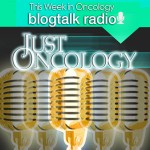Tags
bimetric scoring systems, ces 2013, digital health, health, michaeal singer, Quantified Self, vitality analyzer, wellness
By Gregg A. Masters, MPH
There is considerable (and growing) attention focused on the emerging role of ‘quantified self’ tools to improve our overall health status, enhance access, improve outcomes while also lowering the total cost of health care. At the recently concluded CES 2013 Conference and Exposition a Forbes article posed the following question:
CES 2013: The Year of The Quantified Self?
If you’ve not heard of the ‘Quantified Self‘ movement you will. Their website is chock full of information and health apps for the curious and motivated. The recent blog post: Future Normal: Quantified Self Tools at the Apple Store hints at the new normal now in sight. Or as overheard several times on the Silicon Valley circuit for at least the last three years and oft credited to William Gibson:
The future is already here. It’s just not evenly distributed yet
So in this entrepreneurial frenzy and resultant sea of digital health apps all chasing the holy grail to define and manifest a healthier America, much attention has rightfully focused on the capture, reporting and sharing of meaningful biometric data to maintain health, improve health literacy, better inform doctor/patient communications and ultimately support improved health outcomes.
Against this background, now ponder the following xPrize-esque(?) question:
Imagine if you could have a conversation with your body on a cellular level. What if you asked your cells, how am I really doing? Am I healthy? Is my treatment working? Is there anything I could be doing better?
And consider the following reply:
‘The Vitality Analyzer, an FDA approved Class II over-the-counter medical device that electrically measures your health, is a simple tool that helps you answer those questions. Based on well established technology, the Vitality Analyzer measures your health collecting information about your body’s cells and then translates it to a numeric score; your Vitality Index a global health indicator.’
Sound interesting, if not a bit of an over the top claim to make? it did to me. So on the Wednesday, January 30th 2013 broadcast of ‘This Week in Oncology‘ we’ll chat with the inventor Michaeal Singer and dive deeper into the peer reviewed science supporting the ‘well established technology’ cited above.
To state the obvious, at least from the point of view of cancer patients wondering what is happening at the cellular level minimally in between those routine or non-routine follow-up visits to the oncologist, if this metric can reliability report on the underlying state of health or to the contrary tumor pathogenesis, this is the kind of ‘biomarker’ information most cancer patients would want to have.

I got here looking for more information on the Vitality Analyzer, especially with relation to cancer. Alas, I have found it difficult to get further because of all th pop-ups and ads. As a cancer patient, your site looks chock-full of good info, but the ads just killed it for me. But thanks anyway.